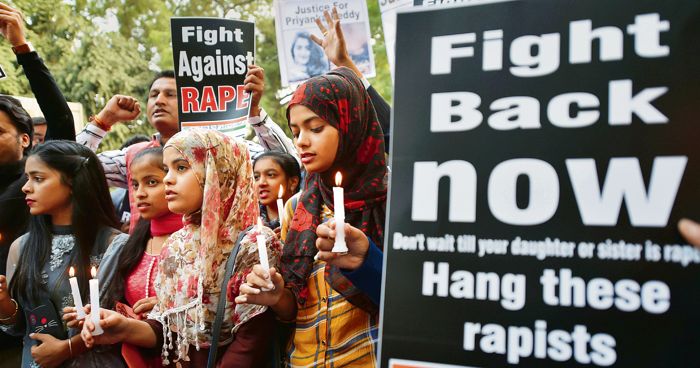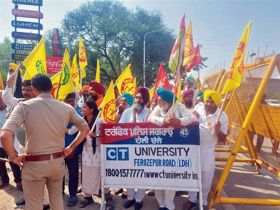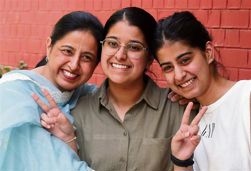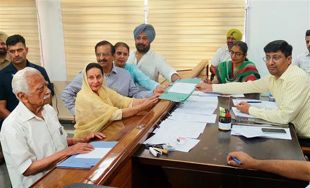
Hasty approach: Fixing a time limit might allow decision-making on ambiguous grounds such as the public’s demand for justice.
GS Bajpai
GS Bajpai
Professor, National Law University, Delhi
THE Centre’s petition before the Supreme Court, seeking a seven-day time limit for deciding mercy petitions of death-row convicts, has re-ignited the issue of putting a time frame in the administration of justice. The petition seeks modifications to the guidelines set by the apex court in the Shatrughan Chauhan case regarding the rights of death-row convicts. It has been filed in the backdrop of uncertainty regarding the execution of convicts in the 2012 Nirbhaya case. The Central Government, in its petition, pleads for a time limit to be set for filing curative and review petitions, and also requests that states, jail authorities and competent courts should be directed to issue death warrants within seven days of the rejection of a mercy petition, instead of the present 14-day period. The Supreme Court, while dealing with multiple petitions with regard to the rights of convicts on death row, had held that undue, unexplained and inordinate delay in the execution of the death sentence would be a ground for commutation to life imprisonment. The pardoning power can be exercised by the executive branch of the government at any time after the commission of an offence — before undertaking of legal proceedings, during their pendency and also before or after conviction.
The power of the President to grant pardon and to suspend, remit or commute sentences in certain cases arises from Article 72 of the Constitution. It has popularly been called ‘mercy power’. A similar, though narrower, power vests in the Governor under Article 161, regarding matters to which the executive power of the State extends. However, these do not contain any guidelines for how the power is to be exercised. Further, this power has to be exercised by the President or the Governor in consultation with the Central and state governments respectively, and not on their own. The Head of State is bound by the advice of the government concerned.
This debate has been authoritatively settled in the Shatrughan Chauhan case in 2014. Here, the Supreme Court held that death sentence can be commuted to life imprisonment in case of inordinate delay in deciding the mercy plea. The court also made a pronouncement that seeking mercy is a constitutional right of the convict.
Given the uncertainty involved in the whole process of death penalty, it is also called a lethal lottery. Errors in the death penalty judgments are known all over the world. The innocence project in the US has been questioning the award of death penalty and it has been able to exonerate around 165 convicts since 1973. This was possible only because the review and reappraisal in suspected cases was allowed. In India, as many as 378 convicts are on death row. And all these cases are not as prominent as the Nirbhaya one, where the facts and legal processes are well known to all. It is in this context that appeal, mercy and review-related entitlements of the death-row convicts are the only channels which may alter the destiny of these convicts. In several cases, the effective exercise of these provisions has saved the lives of many death-row convicts in India. The National Law University’s (NLU, Delhi) Report on Death Penalty suggests that between 2000 and 2014, the trial courts in India sentenced 1,810 people to death, more than half of which were commuted to life imprisonment and about a quarter of those, 443, were acquitted by the Supreme Court and high courts. This reinforces the need for a robust appeal process, including review and mercy petition in such cases. Even though the time taken for the disposal of mercy petitions and other processes tends to cause agony and trauma to the prisoners and the victim’s family, it is still worth enduring for the sake of justice and fairness as death penalty has irreversible consequences.
In matters involving questions of life and death, a time limit can also compromise the adequate consideration given to all relevant factors that go into deciding the matter at hand which is peculiar to circumstances of each case. It might allow decision-making on ambiguous grounds like the public’s demand for justice, conscience of the public, etc. It is also feared that fixed time limits may dilute the due process and may not allow the convicts to access the legal remedies available to them in a real sense. The process might also become mechanical that caters to personal preferences and societal pressure in arriving at a decision.
Currently, there is no fixed duration for any stage of the criminal justice proceedings. Even the fast-track courts, which are supposed to dispose of cases quickly, have not set any fixed time limit for all types of cases. The administration of justice is not like other services. Necessary procedure is required to ensure that sufficient opportunities are accorded to each party to present its case based on sound legal principles. It also affords the opportunity to not get swayed by opinion and charged emotions of the public and the media.
What is upsetting is that the Centre’s haste is particularly driven by the experiences of the Nirbhaya case. Arguably, all cases do not have Nirbhaya-kind elements. Rather, as per the NLU Delhi study, a majority of the death-row convicts come from an underprivileged background without having adequate protection of legal aid. The problem with applying a certain approach based on the experience of a particular case would be unfair in a number of other cases.
India’s criminal justice system overflows with situations that can wrongfully deprive citizens of their right to liberty. The misconduct of investigative agencies, poor investigative skills, political pressure and criminal prejudice towards certain sections of the citizenry, a huge backlog in the judiciary, as well as a highly stratified access to justice, are just a few instances. There is a talk going on that an inquisitorial system must be adopted in cases of sexual offences so as to increase the judges’ role in the investigation process. However, this will further lead to an arbitrary manner of decision-making in these cases, given the retributive instincts of the community in such matters. Since the law has a monopoly over lawful killing, it must not forget or forgo the procedural fairness in any matter. If the only reason for modifying guidelines is to avoid delaying tactics by the defendants, we have a choice to make between allowing delays and any likely unfairness.
Join Whatsapp Channel of The Tribune for latest updates.




























